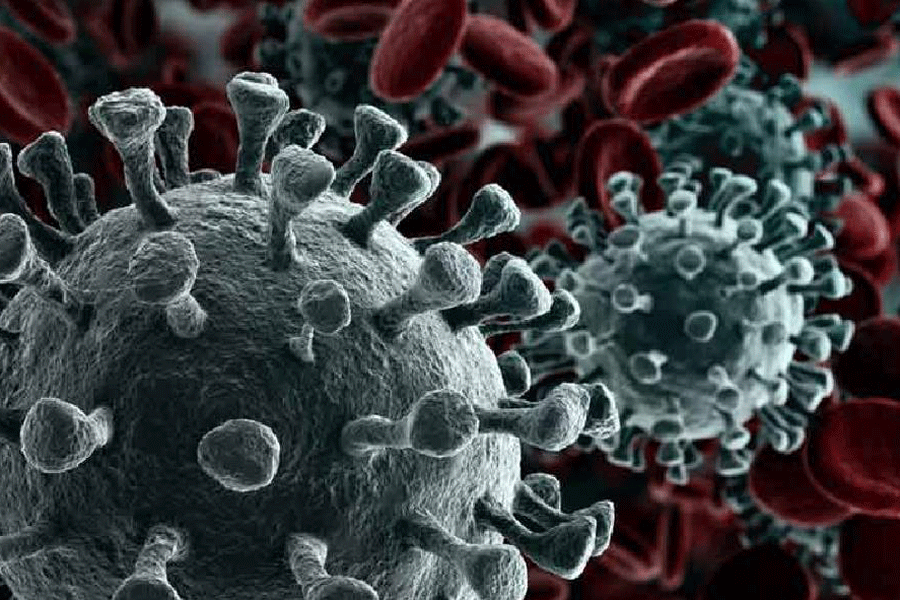The Covid-19 virus can deplete the counts of friendly resident bacteria in the upper respiratory tract, according to a study from Bengal that scientists say provides an additional explanation why the delta variant was much worse than omicron.
The study by scientists at the National Institute of Biomedical Genomics (NIBMG), Kalyani, is the first to record stark differences in the patterns of friendly resident bacteria in the noses and pharynxes of people infected with the delta and omicron variants.
The researchers say their findings -- if confirmed through studies with larger samples and more variants -- could potentially be used to predict the severity of emerging and future variants of the coronavirus, which continues to circulate worldwide.
The findings also bolster hopes of using cocktails of friendly bacteria, called probiotics, to combat the coronavirus, although the scientists have cautioned that more evidence needs to be generated for nasal probiotic therapy.
Several studies in the US since the start of the pandemic have established that the coronavirus can alter the populations of friendly bacteria in the human gut and other organs and disrupt what scientists call the microbiome -- the collection of microbes naturally found in the body.
Using preserved nasal and throat swab samples collected during 2021 and 2022, the NIBMG scientists compared the microbiome patterns from 19 healthy individuals, 19 people infected with omicron, and 24 people infected with delta.
“The microbiome patterns in people infected with omicron were somewhat similar to those in healthy uninfected people,” said Souvik Mukherjee, a scientist at the NIBMG who led the study. “But in delta-infected people, we saw a clear shift from friendly to hostile bacterial populations.”
The study found that the microbiome in the noses and pharynxes of those infected with the delta variant had depleted populations of the friendly bacterial species alongside a higher-than-expected abundance of potentially harmful bacteria.
Virologists had attributed the largely mild illness caused by the omicron wave that swept the country in January 2022 to a combination of immunity acquired from previous Covid-19 infections during the first wave in 2020 and the delta wave in 2021 and from the Covid-19 vaccines.
The NIBMG study, accepted by the journal Microbiology Spectrum, a publication of the American Society for Microbiology, now holds out another explanation for the severe disease caused by delta.
“The severity of disease by different coronavirus variants could be attributed to how the variants interact with the resident microbiome in the upper respiratory tract,” said Partha Majumder, former director of the NIBMG and currently national science chair at the Science and Engineering Research Board, an arm of the Union science ministry, who was not associated with the study.










